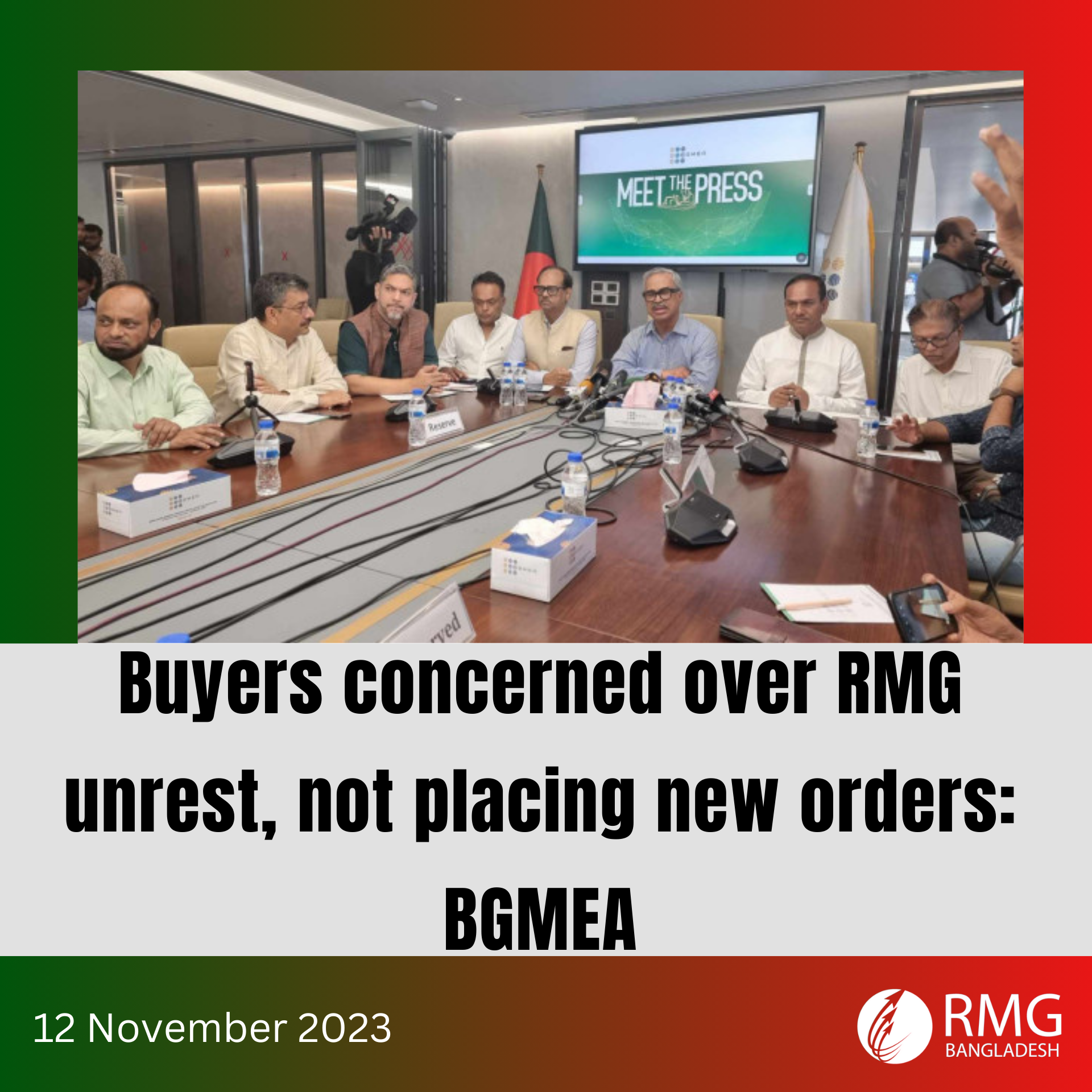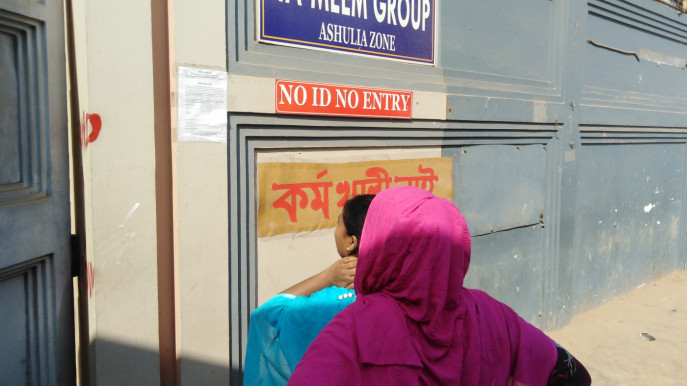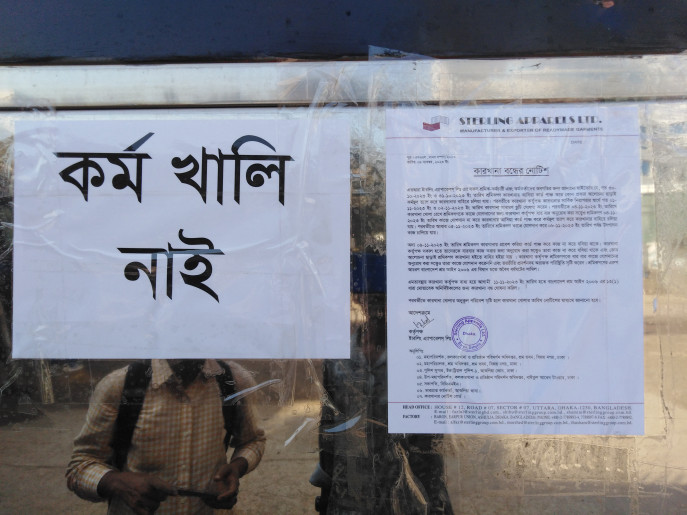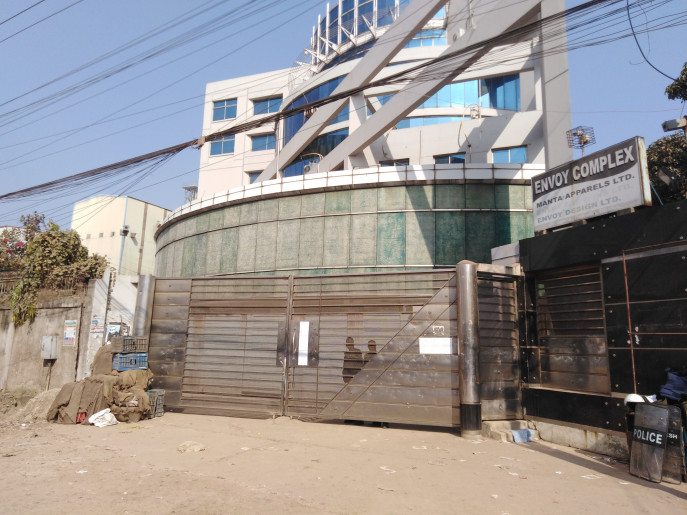The US State Department has expressed concern about the deaths and ongoing “repression” of apparel workers and trade-union activists demonstrating for a review of the recently announced wage hikes.
The State Department also called on the government to ensure that workers are able to exercise their rights to freedom of association and collective bargaining “without fear of violence, reprisal or intimidation”.
Like in the previous days, ready-made garment workers on Thursday took to the streets over pay, leading to clashes with law enforcers.
After the death of a female apparel worker on Wednesday amid violent protests, the flaring-up agitations in Savar and Gazipur on Thursday also left production suspended as many factories opted for indefinite closure.
Issued on Wednesday, the State Department statement mentioned two labour deaths. “We were saddened by the reported killing by police last week of Rasel Howlader, a 26-year-old factory worker and union member from Sommilito Garments Sramik Federation. Additionally, we mourn the loss of Imran Hossain, a 32-year-old worker who died in a fire set by protestors inside a Dhaka factory,” said the Department spokesperson, Matthew Miller.
Extending condolences to the victim families and the greater labour communities, Mr Miller added, “We are also concerned about the ongoing repression of workers and trade unionists. We call on the government of Bangladesh to protect workers’ right to peaceful protest and investigate allegations of false criminal charges against workers and labor leaders.”
The statement also commended the members of the private sector who have endorsed union proposals for a reasonable wage increase.
The United States urged the tripartite process to revisit the minimum wage decision to ensure that it addresses the growing economic pressures faced by workers and their families.
Meantime, labour unrest continued on Thursday, rejecting the new wage proposal and demanding a revision of the wage to Tk 23,000 as police and readymade garment workers were locked in fresh clashes at Ashulia and Gazipur industrial zones.
The clashes left one law enforcer and dozens of workers injured.
The workers rejected the RMG wage board’s proposal for a minimum salary of Tk 12,500. Following the demonstrations, more than 100 garment factories located in the apparel belt remained shuttered on Thursday.
Besides, a good number of units announced closure for an indefinite period in accordance with labour law provision 13 (1) — which stipulates ‘no work no pay’.
In the morning, several hundred RMG workers took positions on the streets at Gazipur and Ashulia garment belts, demanding Tk 23,000 as the minimum salary.
Industrial Police sources said that workers demonstrated on Dhaka-Tangail and Ashulia-Bypail highways in the morning. Workers at some Gazipur factories set fire to tyres on the Dhaka-Tangail highway.
Following this, workers and law enforcers were locked into chases and clashes. The workers later in the noon vandalised a factory named Tusuka in Konabari. Police used tear gas and sound grenades to disperse them.
Sources said workers in factories at Ashulia reported to their respective workplaces in the morning, while some factory workers observed a work abstention.
Later, authorities announced the closure of those factories for Thursday, and some of the workers gathered at Ashulia-Bypail road. Police dispersed them by using tear gas after workers threw bricks.
Following the announcement of the new minimum wage of Tk 12,500 by the labour ministry on November 07, hundreds of thousands of workers in different industrial zones demonstrated on Wednesday, when a female garment worker died in reported police firing.
In addition to police, some 44 Border Guard Bangladesh (BGB) platoons have been deployed at Ashulia, Savar, Mirpur, Gazipur, and other RMG hubs of the country, according to officials.
Several labour rights organisations announced protests, rejecting the new wage.
Taslima Akhter, coordinator of the Garments Workers’ Movement for Raising Wage, a platform of 11 organisations, issued a separate statement on Thursday condemning the attacks on workers, which have resulted in three deaths since October 23 and several hundred injuries.
She rejected the wages board’s minimum salary proposal and demanded Tk 25,000.
The platform is planning to organise a protest in front of the National Press Club in the city on November 10, demanding a Tk 25,000 minimum wage and justice for the three workers killed in the last two weeks of protests.
The Bangladesh Garment Workers Trade Union has also declared a protest on the same day, demanding a review of the wage.






















